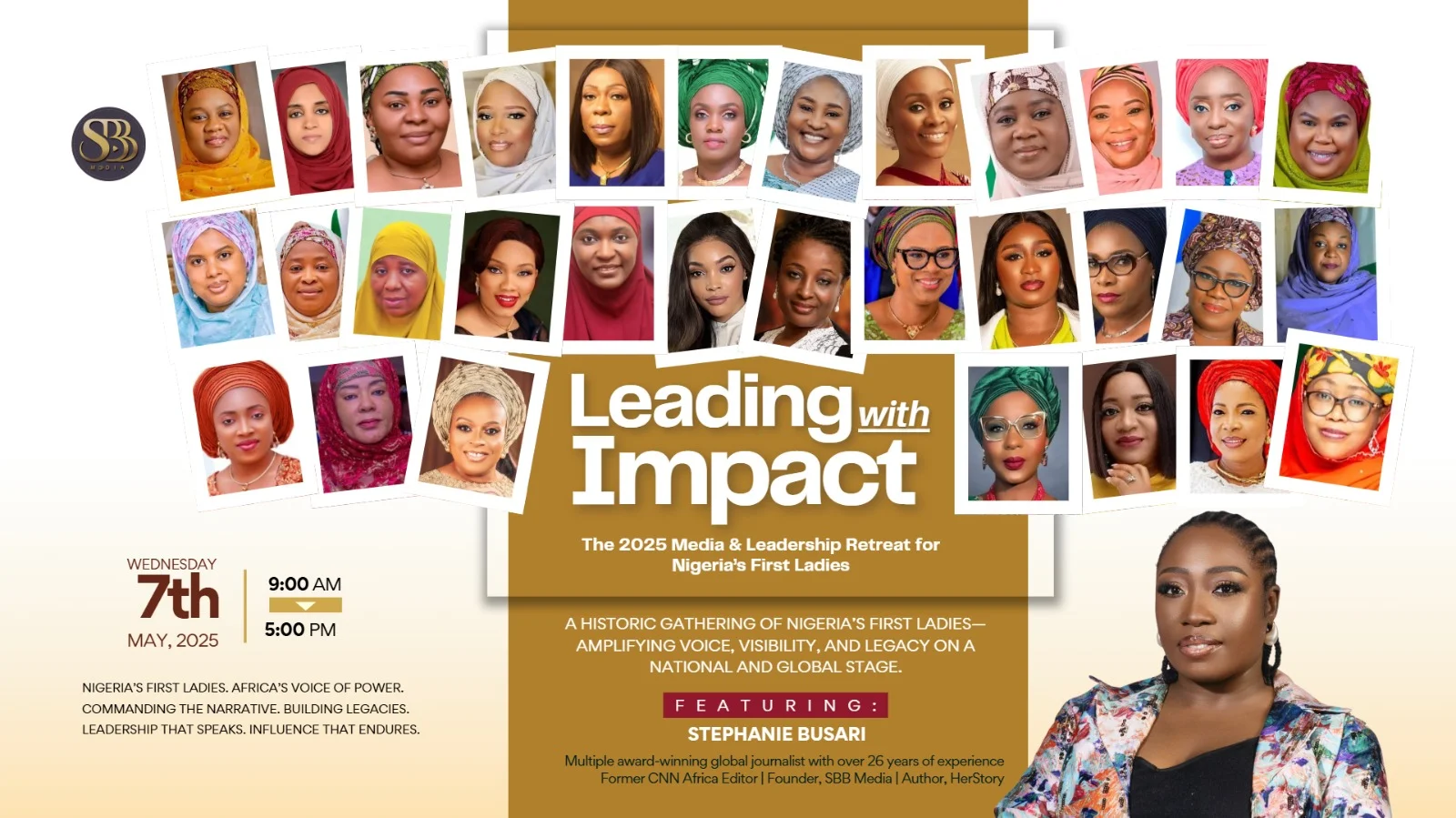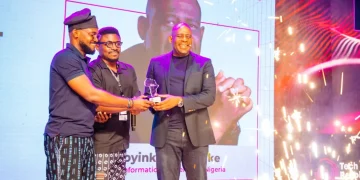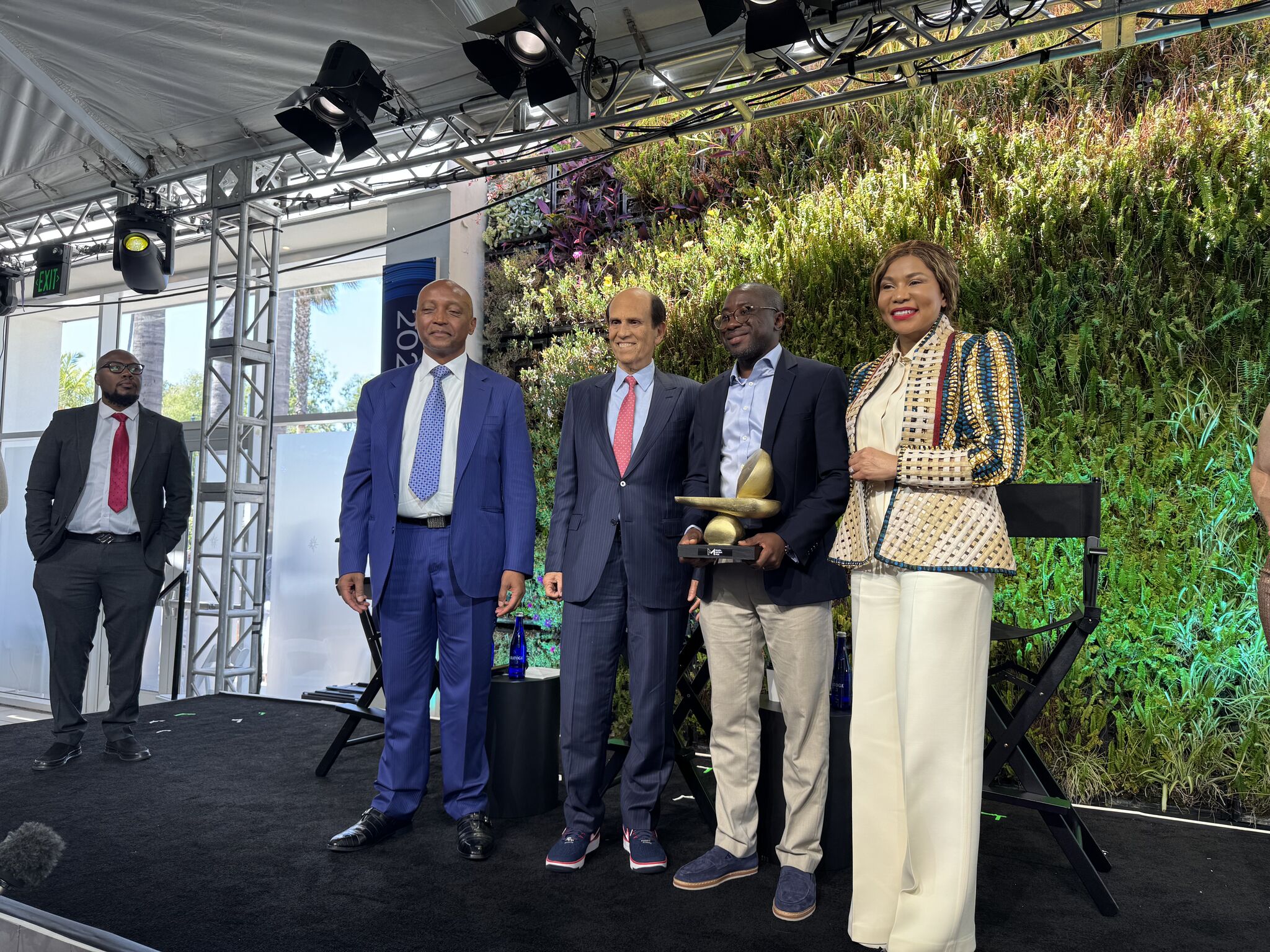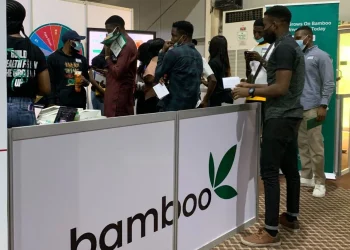From soft power to structured influence, Nigeria’s First Ladies take centre stage in a landmark shift.
On 7 May 2025 in Abuja, something rare and historic happened: 15 First Ladies from across Nigeria gathered for a high-level retreat focused not on celebration or ceremony, but on strategy.
The one-day session, titled “Leading With Impact,” was a closed-door media and leadership masterclass designed to sharpen the public voice, digital presence, and narrative power of Nigeria’s most visible, yet often under-leveraged women in state-level leadership.
Hosted by Emmy Award-winning journalist Stephanie Busari and her firm SBB Media, the retreat marked a decisive shift: one where First Ladies were not just seen as symbols of influence, but equipped as strategic communicators, public trust builders, and architects of legacy.
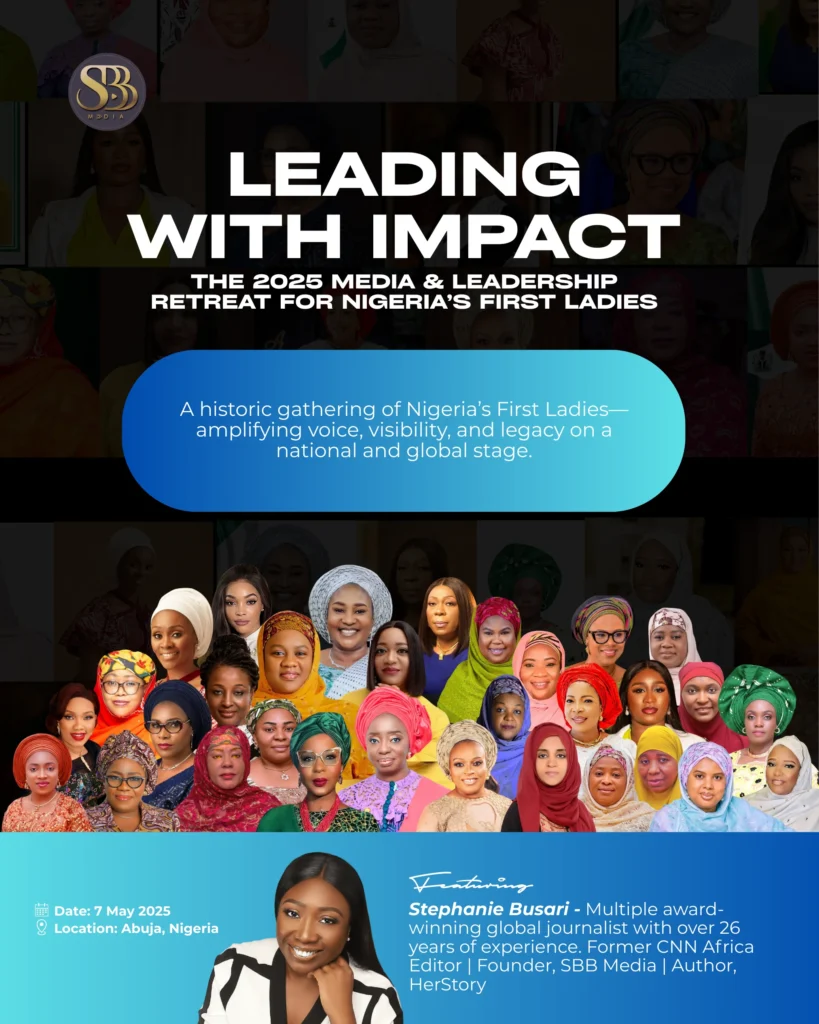
The Power Behind the Office
While First Ladies hold no constitutional office, their role in Nigeria’s governance matrix is far from ornamental. Across the country, they lead landmark initiatives in healthcare, education, gender advocacy, economic inclusion, and youth development. From Autism centres to STEM training for girls, from skills acquisition for widows to anti-GBV shelters, these women are shaping real outcomes, often with little formal visibility infrastructure.
We stand at a unique intersection of authority and trust. Villages awaiting clean water, mothers needing safe hospitals, and entrepreneurs dreaming of inclusive markets are listening for the leadership only we can supply,” declared Her Excellency Mrs. Bamidele Abiodun, First Lady of Ogun State, in her keynote speech delivered on behalf of the Forum Chairperson, Her Excellency Ambassador Dr (Mrs) Olufolake Abdulrazaq, First Lady of Kwara State.
“Today’s retreat is our forge, where we temper words into instruments of influence, and refine stories until they compel both legislation and partnership.”
Stephanie Busari in the Room
With over 20 years at the forefront of global journalism, including as CNN Africa’s former Senior Editor, Stephanie Busari brought a rare blend of editorial authority and cultural fluency to the session. She led modules on:
– Speaking with authority and global presence
– Mastering media interviews and high-pressure public moments
– Controlling narratives through strategic storytelling
– Building digital gravitas on platforms like LinkedIn and Instagram
Each First Lady also received an official executive portrait and a customised 30-day communications roadmap tailored to her specific state and signature programmes.
This is about building a generation of African women who can lead with power, and speak with clarity on any platform, from a village town hall to the World Economic Forum, said Busari.
A Soft Launch: Understanding Africa’s First Ladies
The retreat also included the soft launch of a new collaborative book project titled Understanding Africa’s First Ladies, spearheaded by Her Story Global, the storytelling division of SBB Media.
The project will feature state and federal First Ladies across Africa, sharing their personal journeys, programme impact, and untold experiences. It aims to create the first continental archive of First Lady leadership as a force for policy, compassion, and intergenerational change.
First Ladies in Attendance (Physically Present):
- Mrs. Priscilla Otti – Abia State
- Representative of Dr. Hyacinth Alia – Benue State
- Dr. Falmata Babagana Zulum – Borno State
- Deaconess Tobore Oborevwori – Delta State
- Rev. Eyoanwan Otu – Cross River State
- Mrs. Betsy Obaseki – Edo State
- Mrs. Bamidele Abiodun – Ogun State
- Hajiya Aisha Bello Matawalle – Zamfara State
- Hajiya Zulaihat Radda – Katsina State
- Hajiya Mariya Tambuwal – Sokoto State
- Hajiya Hafsat Uba Sani – Kaduna State
- Hajiya Gumsu Abacha Buni – Yobe State
- Hajiya Lami Fintiri – Adamawa State
- Hajiya Zainab Shinkafi Bagudu – Kebbi State
Joined Virtually:
- Amb. Dr. (Mrs) Olufolake Abdulrazaq – Kwara State
- Mrs. Chioma Uzodimma – Imo State
In an environment where visibility is often mistaken for vanity, this retreat reframed it as something far more powerful: a governance tool, a leadership strategy, and a developmental asset. For Nigeria’s First Ladies, many of whom are already shaping state-level policy through maternal health, education, gender advocacy, and enterprise, the ability to communicate with clarity and conviction is no longer optional. It is now a core function of public leadership.
This event signals the emergence of a new kind of platform, one that recognises women in proximity to power not as symbolic figures, but as strategic actors whose voices shape culture, build trust, and influence national progress. Quiet influence is giving way to structured presence. And as interest in similar programmes builds across the continent, it’s clear that this is not just a one-time retreat, it is the quiet rise of a new visibility movement in African public leadership.

